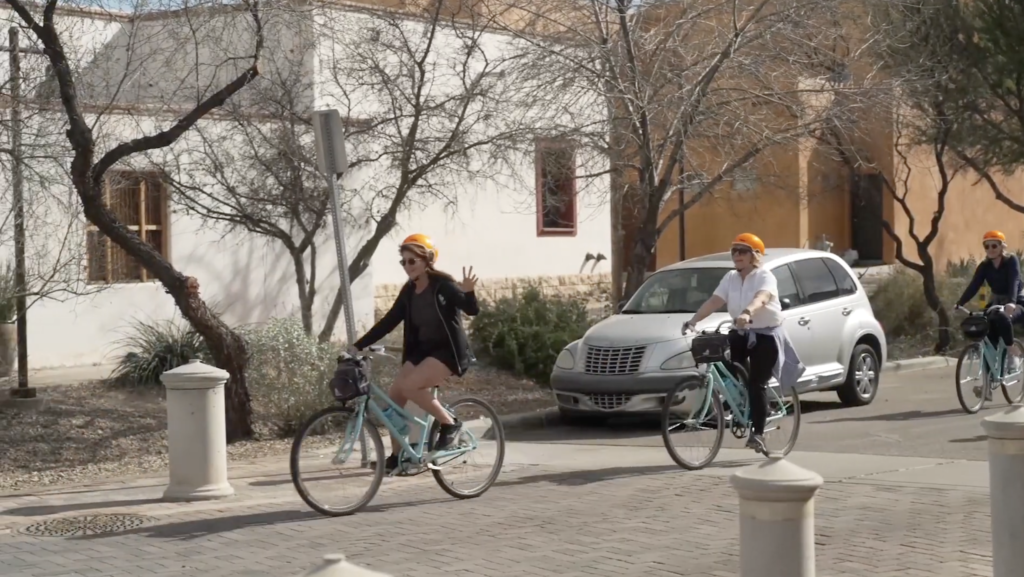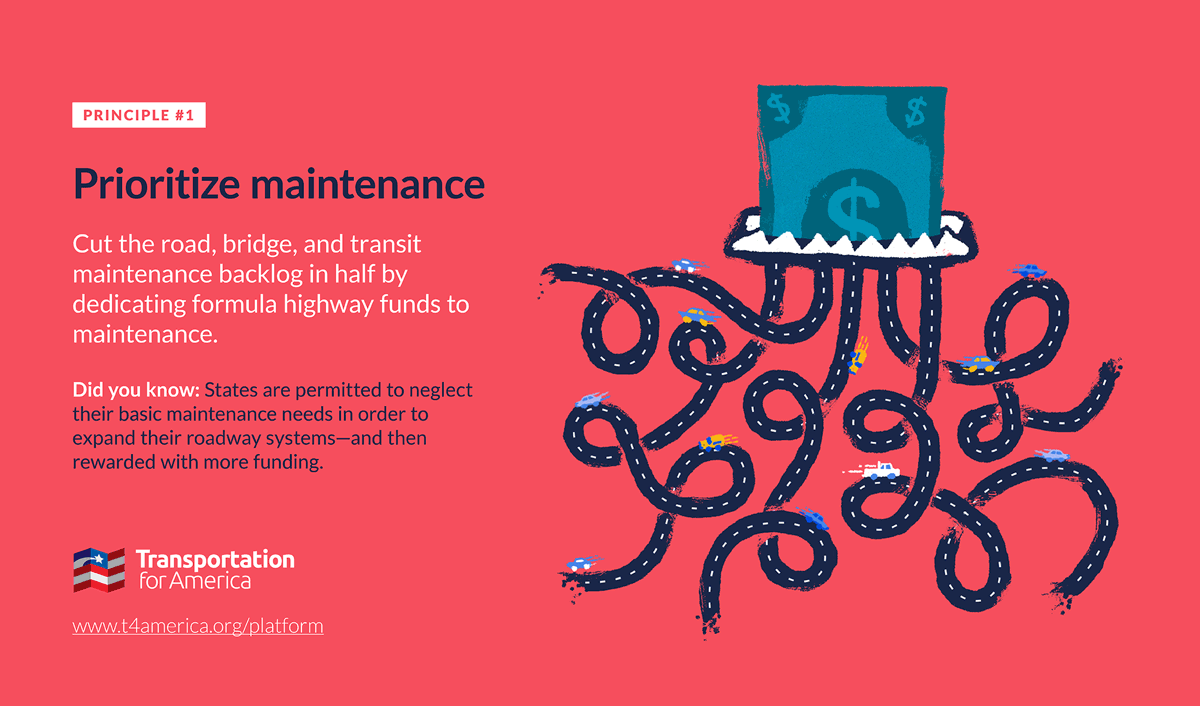A blueprint for healthier, safer streets: Complete Streets videos from Pittsburgh, PA, Louisville, KY, and Tucson, AZ

Smart Growth America and the National Complete Streets Coalition, with partnership and support from CityHealth, produced a series of videos telling the story of Complete Streets policies in three U.S. cities. These videos provide insight into what Complete Streets policies can accomplish, what makes for an effective policy, and strategies for complete streets implementation.
Don’t miss our videos about three cities that have passed a policy and are now doing the work to make the transportation system safer and more accessible for all members of their community.
About Complete Streets and these videos
Complete Streets are streets for everyone—designed and managed to prioritize safety, comfort, and access to destinations for all people who need to use a street. Complete Streets policies can help cities transform how they make decisions about their streets. Done right, these policies can help cities improve public health and address longstanding inequities in the transportation system. The National Complete Streets Coalition at Smart Growth America has been advancing the adoption and implementation of Complete Streets policies for two decades to ensure that everyone who needs to use our streets—no matter how they get around—can safely and comfortably do so.
CityHealth and the National Complete Streets Coalition at Smart Growth America recognize cities with exemplary Complete Streets policies—a key step in producing safer streets that can be used by everyone. Learn more at cityhealth.org and completestreets.org.
Pittsburgh, PA
In Pittsburgh, the need and demand for modes of transportation beyond car travel was clear when former Mayor Bill Peduto and the City Council passed the 2015 Complete Streets ordinance, creating the Department of Mobility and Infrastructure (DOMI), and starting the ongoing process of creating space for transportation modes beyond car travel. Though a Complete Streets policy didn’t change Pittsburgh overnight, the policy serves as a blueprint that will outlast individual mayors and DOMI directors and continue guiding Pittsburgh towards safer streets.
If you are a mayor, look at your population. And if your population needs multiple different ways to get from point A to point B, then you have a responsibility. Because mobility not only affects being able to get to work, it affects being able to get to the doctor, it affects being able to get food. And in fact, the greatest factor in economic mobility is the ability to get from point A to point B.
Bill Peduto, mayor of Pittsburgh, 2014-2022
Hear from
Mayor Ed Gainey
Bill Peduto, mayor 2014-2022
Kim Lucas, acting director of DOMI
Karina Ricks, former director of DOMI
Erika Strassburger, City Councilmember, District 8
Louisville, KY
“A lot of our high-intensity traffic areas are also in the same areas that our poorest health outcomes are occuring at. Now we have the opportunity to try and correct that.” —David James, City Councilchair & co-sponsor of the Louisville Complete Streets ordinance
Adopted in 2019, the Louisville, KY Complete Streets policy is newer, but some changes are already underway in the city, including simple design changes to Bardstown Road, a neighborhood main street that was instead engineered to move as many cars as possible as fast as possible, at the expense of moving all people safely and enhancing a valuable destination. In the video, city council members, city transportation staffers, and a Louisville resident describe the changes they’ve observed in the city and why they are excited to see implementation continue.
Hear from
David James, City Council Chair & co-sponsor of Complete Streets ordinance
Cassie Armstrong, City Councilmember
Dirk Gowin, City of Louisville, Transportation Division Manager
Amanda Deatherage, City of Louisville, Transportation Planner Supervisor
Jackie Cobb, Louisville resident
Tucson, AZ
For three years, local groups, including the Living Streets Alliance, advocated for a Complete Streets policy in Tucson in response to the city’s pedestrian injury and fatality rate. The policy was adopted unanimously in 2019. Now, the city is focused on implementing the policy in the communities that need safety and public health investments most.
We’re using safety as a key driver…as well as investing in areas of our community that have historically seen lower levels in investment…where you see residents that are going to be more dependent on walking, biking, taking transit as their primary means of transportation, and they’re gonna face [street safety] risks at higher levels.
Patrick Hartley, City of Tucson, Complete Streets Coordinator
Right now, the city is building hundreds of miles of bike boulevards throughout the city, and as they restripe streets, they’ve found opportunities to expand bike lanes, narrow car lanes, and even drop travel lanes on larger roadways that don’t have much traffic. Residents look forward to a safer, healthier, and more equitable city.
Hear from
Mayor Regina Romero
Patrick Hartley, City of Tucson, Complete Streets Coordinator
Evren Sönmez, Living Streets Alliance, Director of Strategic Policy and Practice
Gene Martinez, Community Liaison
Grecia and Antonio Ramirez, Tucson residents
Jennifer Flores, Los Amigos Elementary, Librarian



















